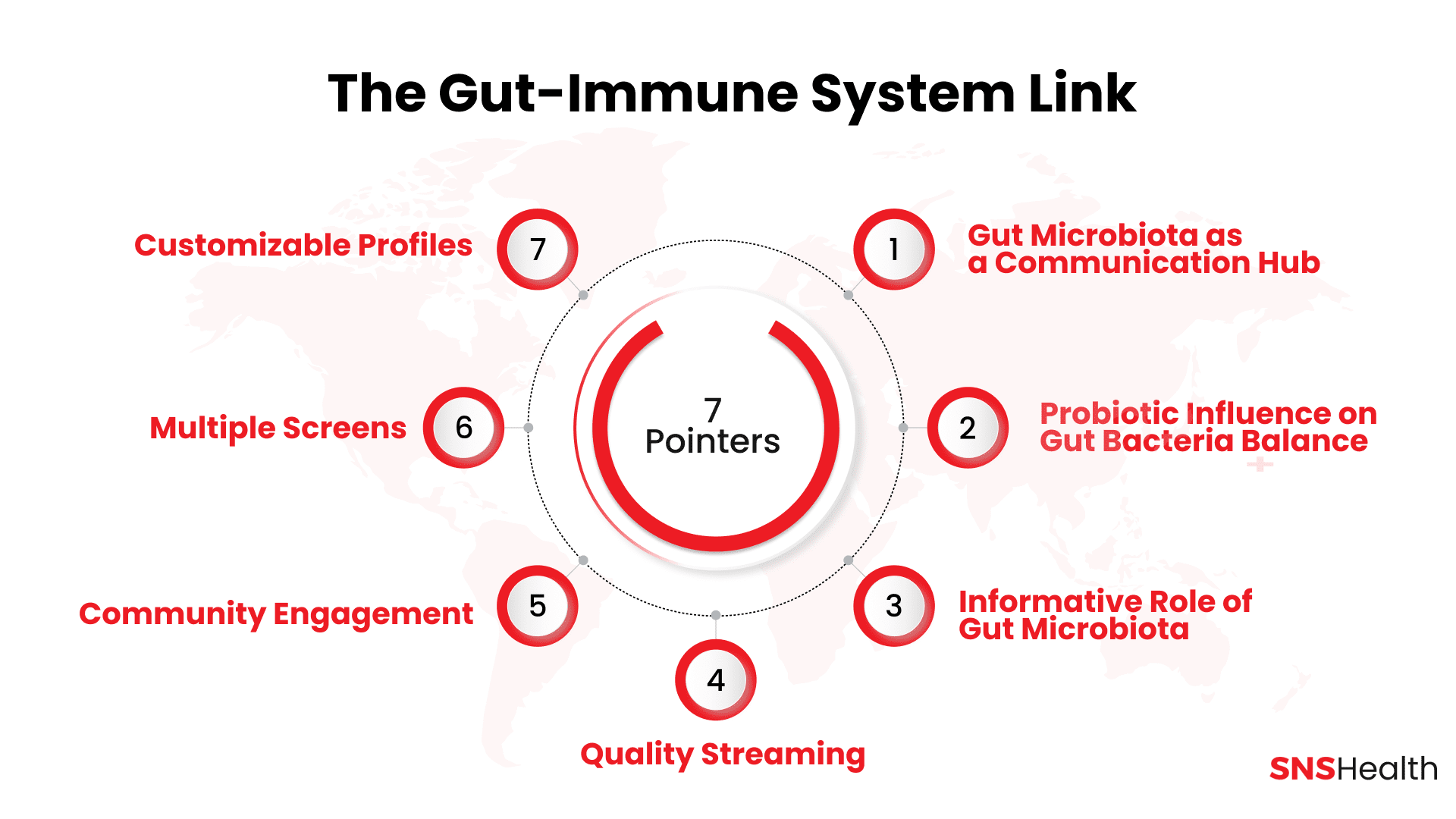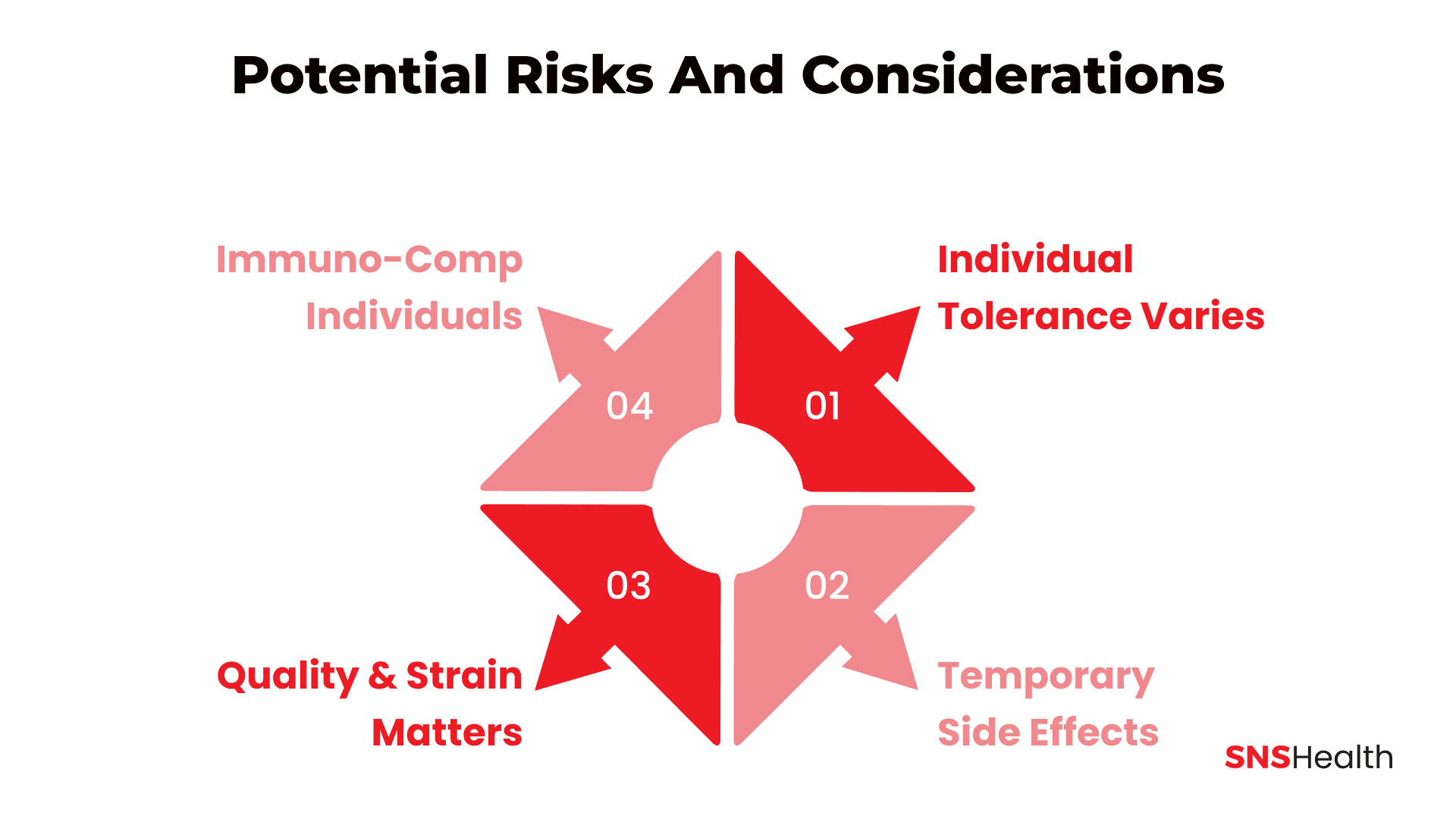Welcome to a journey into the fascinating world of probiotics and their extraordinary connection to our immune system. As we unravel the intricate relationship between these beneficial microorganisms and our body's defense mechanisms, you'll discover the profound impact they have on promoting overall health. Probiotics, found in fermented foods and supplements, play a vital role in maintaining a harmonious balance within our gut microbiota. This balance, as we'll explore, is not just crucial for digestive well-being but holds the key to fortifying our immune defenses. Join us in exploring the science behind this powerful symbiosis and learn how simple dietary choices can pave the way for a robust immune system.
Understanding probiotics
Probiotics, diverse strains of beneficial bacteria, are pivotal players in optimizing gut health. These microorganisms, commonly sourced from fermented foods and supplements, exert their influence by colonizing the gastrointestinal tract. They operate through intricate mechanisms, bolstering the balance of the gut microbiota. Understanding probiotics involves delving into their roles in enhancing nutrient absorption, preventing harmful bacteria overgrowth, and fostering a resilient digestive environment.
The gut-immune system link

Delving deeper into the intricate landscape of our physiology, the Gut-Immune System Link emerges as a critical nexus in our quest to unravel the mysteries of probiotics.
Gut microbiota as a communication hub: Within the intricate ecosystem of the gut, a diverse community of microbes orchestrates a continuous exchange of signals, forming a crucial communication hub.
Probiotic influence on gut bacteria balance: Probiotics, integral to this dynamic, actively shape the delicate equilibrium of gut bacteria, influencing the overall composition and diversity of the microbiota.
Informative role of gut microbiota: The gut microbiota acts as an informational conduit, transmitting signals that guide the development and function of immune cells, fostering a finely tuned immune response.
Probiotics' contribution to Immune Modulation: Probiotics actively contribute to immune modulation by promoting the growth of beneficial bacteria, influencing immune cells' behavior, and thereby modulating inflammatory responses.
Defense Against Pathogens: This dynamic interplay isn't just a passive exchange; it serves as a robust defense mechanism against invading pathogens, preventing their proliferation within the gut.
Maintaining Immune Homeostasis: The symbiotic relationship between probiotics and the gut microbiota is crucial for maintaining immune homeostasis, ensuring a balanced and effective immune response to various challenges.
Fostering Resilience: Nurturing a flourishing gut microbiome with the help of probiotics provides the immune system with a powerful ally, enhancing its resilience and fortitude in the face of health challenges.
Conditions and diseases
Understanding the impact of probiotics on these conditions and diseases provides insights into their potential therapeutic role, offering avenues for complementary strategies to conventional treatments.
- Allergies and Probiotics: Probiotics have shown promise in addressing allergic conditions by modulating the immune response, potentially reducing the severity of allergic reactions and enhancing tolerance.
- Infections and Immune Support: Studies suggest that certain probiotic strains may contribute to a strengthened defense against infections by enhancing the activity of immune cells and promoting the production of antimicrobial substances.
- Inflammatory Disorders: Probiotics play a role in mitigating inflammatory disorders, such as inflammatory bowel diseases (IBD), by helping regulate the immune response and promoting a balanced inflammatory environment in the gut.
- Autoimmune Conditions: Emerging research indicates that probiotics might influence autoimmune conditions by modulating immune responses, potentially preventing excessive immune reactions against the body's tissues.
- Respiratory Infections: Probiotics may offer respiratory support by bolstering the immune system's defenses in the respiratory tract, potentially reducing the frequency and severity of respiratory infections.
- Gastrointestinal Health: Probiotics are widely studied for their role in maintaining gastrointestinal health, preventing and alleviating conditions like diarrhea, and irritable bowel syndrome (IBS), and promoting a healthy gut microbiome.
- Metabolic Disorders: Some research suggests a link between probiotics and metabolic health, with potential benefits in conditions like obesity and diabetes, possibly through immune-modulating effects.
Incorporating probiotics into your diet
While incorporating probiotics into your diet can be beneficial, it's essential to strike a balance and maintain a diverse, well-rounded approach to nutrition for overall health.
Diverse Probiotic Sources: Explore a variety of probiotic-rich foods, including yogurt, kefir, sauerkraut, kimchi, and miso. Each offers a unique mix of beneficial bacteria, enhancing the diversity of your gut microbiota.
Homemade Fermented Delights: Consider crafting your fermented foods at home. Experiment with homemade yogurt, kombucha, or pickles to ensure freshness and control over the ingredients.
Probiotic Supplements: Opt for high-quality probiotic supplements with strains proven to benefit immune health. Consult with a healthcare professional to determine the right supplement and dosage for your specific needs.
Mindful Cooking Techniques: Preserve probiotic viability by choosing cooking methods that maintain the live cultures. For instance, add fermented foods to dishes after cooking to retain their probiotic potency.
Daily Consistency: Foster a consistent probiotic intake by incorporating small servings of probiotic-rich foods into your daily meals. Gradual adjustments make it easier for your digestive system to adapt.
Explore Global Cuisine: Embrace global cuisines rich in fermented foods. Japanese miso soup, Indian dosas with fermented batter, or Korean bibimbap with kimchi are delightful ways to diversify your probiotic intake.
Balance with Prebiotics: Combine probiotics with prebiotic-rich foods like garlic, onions, and bananas to create a symbiotic effect. Prebiotics nourish the growth of existing beneficial bacteria, enhancing the efficacy of probiotics.
Potential risks and considerations

Individual Tolerance Varies: Probiotics may not suit everyone; individuals with compromised immune systems or underlying health conditions should consult healthcare professionals before use.
Temporary Side Effects: Some may experience mild gastrointestinal discomfort initially. These symptoms often subside as the body adjusts, but persistent issues warrant attention.
Quality and Strain Matters: Probiotic supplements vary in quality and strain. Choose reputable brands with well-researched strains to ensure efficacy and safety.
Risk for Immunocompromised Individuals: Immunocompromised individuals should exercise caution, as live bacteria in probiotics may pose a risk. Medical guidance is crucial for this demographic to weigh potential benefits against risks.
SNS Health - Best source for probiotic supplements
At SNS Health you get a wide range of collections for top branded probiotic supplements like Garden Of Life Dr. Formulated Probiotics Once Daily 30B, Organika Prebiotics + Probiotics Powder, AOR Probiotic-3, Webber Naturals Probiotic 30 Billion 8 Probiotic Strains, Jamieson Probiotic 5 Billion Regular Strength, Genestra Brands HMF Multi Strain, and more.
Conclusion
In conclusion, the profound link between probiotics and immune function underscores the pivotal role these microorganisms play in our overall health. From nurturing a balanced gut microbiota to influencing immune responses, the symbiotic relationship is both intricate and powerful.
Incorporating probiotics into our diet offers a tangible means of supporting our body's natural defenses. As research continues to unfold, embracing the potential benefits of probiotics becomes not just a choice but a strategic step towards fortifying our immune resilience and promoting holistic well-being.








